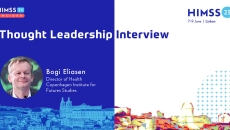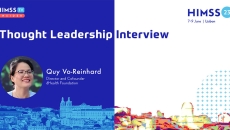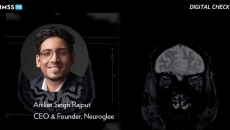Business
Bogi Eliasen, director of health at the Copenhagen Institute for Futures Studies, explains how the Nordics advanced digital infrastructure by applying unique digital identifiers for patients and professionals, and how the HIMSS community helps.
Also, DeepTek has obtained another 510(k) from the US FDA for its AI solution.
Pearly Chen, VP of business development and partnerships at HTC VIVE, relays the results of a report on extended reality use for training healthcare professionals, the feedback received after adoption of the tech and HTC's Accelerator X program.
Quy Vo-Reinhard, dHealth Foundation director and cofounder, highlights the key challenges and applications for frontier technologies, such as immutable health records, the interoperability of health data exchange and the need for education.
AI-enabled pharma manufacturing-compliance platform Leucine secured $7 million, and virtual obesity-treatment company Ilant Health scored $3 million.
The company developed an AI-powered intravascular catheter-based ultrasound that allows providers to capture more precise images of the inside of one's blood vessels.
Kathryn Jackson, VP of language operations at AMN Healthcare, discusses how medical interpretation services can improve health equity and outcomes and how providers can effectively work with interpreters to solidify quality care.
Home technology, like cognitive games and reminiscence therapy, can help patients with mild cognitive impairment, but CEO and founder of Neuroglee Aniket Singh Rajput says AI is needed to determine what modalities work best for individuals.
The partners were awarded a grant under the UK–Switzerland Bilateral: Collaborative R&D program to develop an AI-enabled stroke diagnosis and treatment platform.
Cochairs of FHIR at Scale Taskforce (FAST), Deepak Sadagopan and Duncan Weatherston, outline how FAST helps roll out FHIR nationally to ensure interoperability of security, privacy and identity by various healthcare stakeholders.








